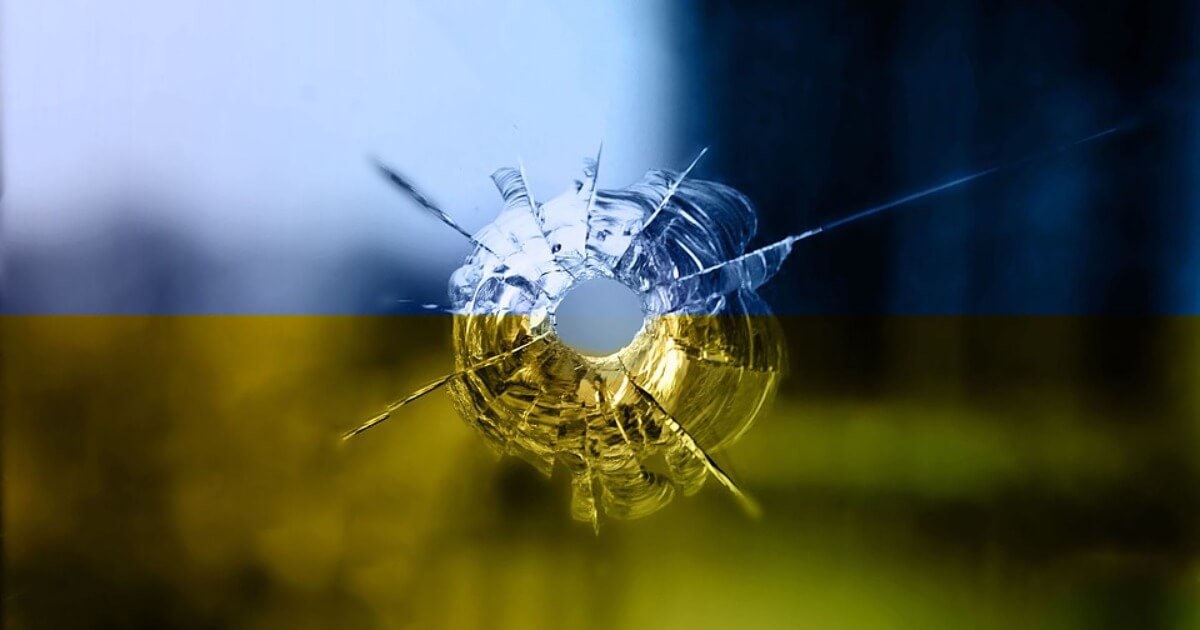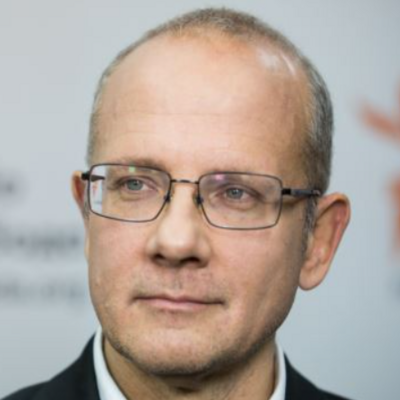Ukraine: The Case for Restricted Geozones
Western and other interested governments should enforce no-fly zones over Ukraine in order to protect objects (such as nuclear power plants) that are of strategic concern to their countries.
September 7, 2023

A Global Ideas Center, Strategic Assessment Memo (SAM) from the Global Ideas Center
You may quote from this text, provided you mention the name of the author and reference it as a new Global Ideas Center, Strategic Assessment Memo (SAM) published by the Global Ideas Center in Berlin on The Globalist.
Shortly after the start of Russia’s large-scale invasion of Ukraine on February 24, 2022, Kyiv made an official request to NATO to make the entire Ukrainian airspace a no-fly zone for Russian flying objects.
Thousands of Ukrainian and pro-Ukrainian media activists launched a global campaign to “close Ukraine’s sky.” NATO, however, immediately rejected Kyiv’s request, apparently fearing an escalation to World War III.
Targeting the global food supply
What was lost in the heated debate over an all-Ukrainian no-fly zone were some non-Ukrainian national security interests on Ukraine’s territory. Recent Russian attacks on grain storage facilities and ports on Ukraine’s Black Sea and Danube coasts illustrate this point.
The rising world grain prices following the Russian attacks are less problematic for Ukraine than for grain-importing countries. The social, political, and perhaps even military implications of rising food costs in poor countries can be far-reaching.
The majority of Russian airstrikes in Ukraine’s hinterland do not have purely military objectives. Many attacks target civilian infrastructure to terrorize or demoralize the Ukrainian population.
Russia’s attacks on Ukrainian food exports also have the purpose of softening Western resolve. Moscow is aware that new waves of hunger migrants from Africa will move less toward the Eurasian Economic Union than toward the European Union. There, their arrival will often electorally benefit pro-Russian radical right-wing parties, such as the so-called Alternative for Germany (AfD).
Standing idly by
It is surprising that those – not only Western – countries whose national interests are being violated on Ukraine’s territory and whose armies would be able to defend them are not doing so. This omission is all the more astonishing given that Russia uses only unmanned aerial vehicles, i.e. missiles and drones, over Ukraine.
The Russian army does not even use manned flying objects directly on the front lines. It operates only over Russian-controlled areas of Ukraine with aircraft and helicopters.
Grain fields, stores, and transportation infrastructure are not the only objects in Ukraine that are important to other countries. The safety of Ukraine’s nuclear power plants – including the decommissioned Chornobyl NPP – should also be of high interest to dozens of governmental and intergovernmental agencies in Brussels, Berlin, Geneva, Vienna, and so on. But that appears to be the case only to a limited extent.
Large swaths of EU territory are dotted with closed or restricted geo-zones where drone flight is banned or regulated. A few hundred miles to the east, Russian missiles and drones with warheads of various sizes can operate near nuclear power plants free from Western interference.
Will the EU impose entry restrictions on Eastern European nuclear particles once they enter the air and the wind blows west? Will the EU’s Frontex border service send radioactive clouds knocking on the EU’s door back to their country of origin?
The diplomatic dimension
An equally bizarre story lies behind the posting and secondment of Western diplomats and other bureaucrats in Ukraine. Hundreds of European and non-European government officials come to Kyiv for more or less long business trips. They do so even after the Ukrainian capital has become a constant target of weekly unmanned Russian airstrikes since October 2022.
Many of these officials represent countries with strong air power and air defense forces. But neither on the way from Ukraine’s western border to the capital nor in Kyiv itself do these deployed, seconded or visiting state officials enjoy the protection of their high-tech armies.
Instead, they must rely entirely on Ukrainian air defenses and security installations. Among other foreign diplomats and politicians, UN Secretary General Antonio Guterres had to hide in a shelter during a Russian airstrike on Kyiv’s city center (later confirmed by Moscow) when he officially visited Ukraine in late April 2023.
No-go areas needed
Willing Western and non-Western countries should form a coalition to declare certain places in Ukraine as vital to their national interests and a no-go area for drones as well as missiles. They should jointly decide how to technically implement such no-fly zones as well as seek Ukrainian government approval for their actions.
It should be made clear to Moscow that any direct or indirect threats to the physical security of the citizens of such a coalition would be neutralized. Such a new policy would be seen by many observers as threatening an escalation into World War III.
However, such caution is both normatively questionable and empirically exaggerated. When it comes to defending existential self-interests – such as the physical security of nuclear power plants and diplomats in Ukraine – the West and other countries cannot compromise.
The lives and health of EU and other foreign citizens are at stake. This cannot be negotiable. On the contrary, compromising on elementary European security interests could create the impression in Moscow that Russia can go even further than hitherto in endangering non-Ukrainian citizens.
From recent historical experience, the fear of escalation is also unjustified. Russia has been using only unmanned aerial vehicles in the Ukrainian hinterland for many months. By comparison, in 2015, the NATO member state Turkey shot down a manned Russian jet over Syria due to a non-threatening 17-second violation of Turkish airspace.
One of the two pilots of the Russian fighter-bomber was killed. In response, Russia imposed economic sanctions on Turkey, but they were soon lifted. A few months later, there was a rapprochement between Moscow and Ankara, and later friendly meetings between Erdogan and Putin resumed again.
The Black Sea issue
There has also been a recent implicit test of the Black Sea no-fly issue. Russia announced in July 2023 that it would not renew the 2022 grain export agreement and would now consider all ships going to Ukrainian ports as hostile. Moscow de facto threatened to bombard them from the air.
Subsequently, however, foreign shipping between Ukraine and the grain importing countries continued under surveillance by NATO reconnaissance aircraft. Despite the Kremlin’s unmistakable threatening gestures, there were no attacks on foreign ships.
Conclusion
The Turkish example of 2015 and recent Black Sea example illustrate that, with clear communication and decisive defense of elementary self-interest of the West, escalation can be avoided. It is not readily possible for hawks in the Russian leadership to start a Third World War based on understandable Western self-protecting measures.
The dividing line between the Russian-Ukrainian war on the one hand and the safeguarding of foreign interests in Ukraine on the other must, of course, remain recognizable.
As long as this is the case, the West can and should take the justified risk of enforcing limited no-fly zones over select strategic objects in the Ukrainian hinterland in close consultation with Kyiv and open communication with Moscow.
Takeaways
Shortly after the start of Russia's invasion of Ukraine, Kyiv made an official request to NATO to make the entire Ukrainian airspace a no-fly zone for Russian flying objects.
Lost in the heated debate over an all-Ukrainian no-fly zone were some non-Ukrainian national security interests on Ukraine's territory. Recent Russian attacks on grain storage facilities and ports in Ukraine illustrate this point.
The majority of Russian airstrikes in Ukraine's hinterland do not have purely military objectives. Many attacks target civilian infrastructure to terrorize or demoralize the Ukrainian population.
Grain fields, stores and transportation infrastructure are not the only objects in Ukraine that are important to other countries. The safety of Ukraine's nuclear power plants should also be of high interest to the international community.
Western and other interested governments should enforce no-fly zones over Ukrainian objects of strategic interest to their countries.
A Global Ideas Center, Strategic Assessment Memo (SAM) from the Global Ideas Center
You may quote from this text, provided you mention the name of the author and reference it as a new Global Ideas Center, Strategic Assessment Memo (SAM) published by the Global Ideas Center in Berlin on The Globalist.


